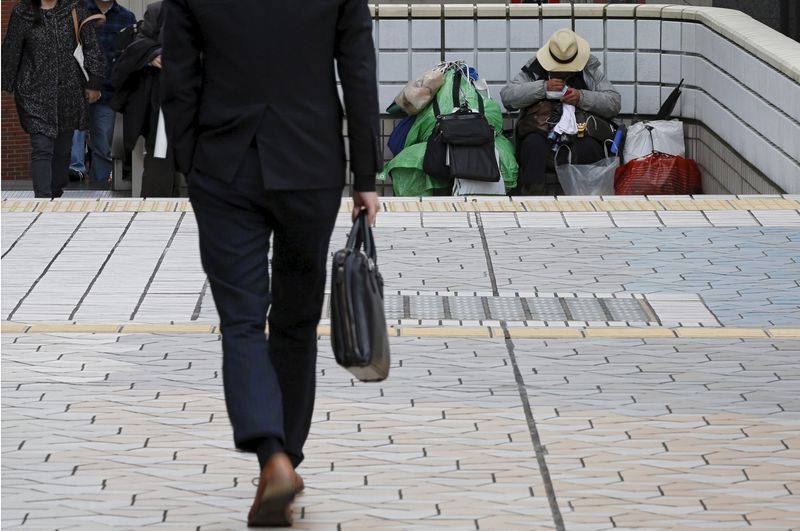TOKYO (Reuters) - Japan's inflation-adjusted real wages fell for the fourth straight month in November weighed down by higher prices even as base pay grew at the fastest pace in more than three decades, government data showed on Thursday.
The Bank of Japan considers various risks in deciding the timing for raising interest rates and the central bank has repeatedly said sustained, broad-based wage hikes are a prerequisite for pushing up borrowing costs.
Inflation-adjusted real wages, a barometer of consumer purchasing power, slipped 0.3% in November from a year earlier, falling for the fourth straight month, data from the labour ministry showed. It revised October's unchanged reading to a 0.4% decline.
The consumer inflation rate that the government uses to calculate real wages and includes fresh food prices but not rent or equivalent, rose 3.4% from a year earlier, accelerating from a 2.6% growth in October, reflecting higher inflationary pressure.
Base salary, or regular pay, rose 2.7% in November, marking the fastest increase since 1992, the data showed, after major companies agreed to higher pay at the spring wage negotiations.
Overtime pay, a barometer of business strength, grew 1.6% for the month from a revised 0.7% gain in October. Special payments, mainly volatile one-off bonuses, climbed 7.9% in November, after a revised 2.2% fall in October.
Total (EPA: TTEF ) cash earnings, or nominal pay, grew 3.0% to 305,832 yen ($1,935.03) for the month, the data showed.
Large Japanese firms are likely to raise wages by about 5% in 2025, the same as last year, the chair of a major business lobby said on Tuesday while pledging efforts to spread the wage growth momentum to smaller firms.
The government of Prime Minister Shigeru Ishiba has put pay rises at the top of its public policy agenda with Ishiba promising to push for wage growth at this year's spring negotiations.

At last year's talks, Japanese firms delivered their biggest pay hike in 33 years.
($1 = 158.0500 yen)

